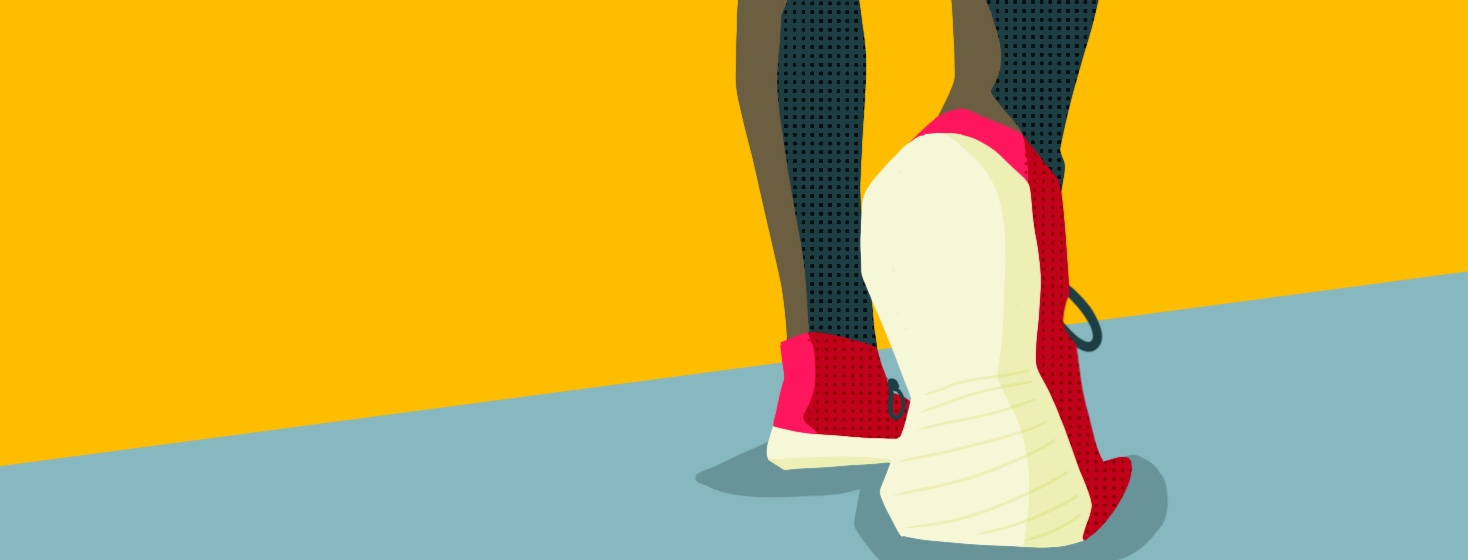Why I Stopped Waiting to Recover from Neobladder Surgery
Seven years ago, I was faced with the choice of which urinary diversion to have. IP? Neobladder? Pouch?
Each option has different surgical complexities, different recovery issues, and different life-long maintenance requirements.
Now that I think of it, choosing a diversion is much like how wizards choose wands in the Harry Potter books.
A little background if you haven't read the books
When Harry went shopping for his first wand he was told that the wizard doesn't choose a wand, the wand chooses the wizard.
And in most cases, the diversion is like that. It ends up choosing the patient. In other words, your specific diagnosis and your particular comfort with bodily functions and fluids will guide you to the right diversion for you.
And - depending on what the surgeon finds during the operation - it might not be the diversion you expected. In some cases, they find cancer in areas that may force the surgeon to install your 2nd choice - or even the third choice. The disease chooses the diversion.
I chose the neobladder. And my disease agreed.
And like every diversion, it has its charms and its demons.
The neobladder is generally unobtrusive. At least until you have to lift something heavy at the exact same moment you need to sneeze. Trust me. That doesn't go unnoticed.
It also doesn't require much in the way of accessories. No bags, tubes, adhesives, etc. Keep the night-time bed pads handy, though.
Urination is pretty standard (sitting more than standing), and there will be days when the mucus from the neobladder reminds you that you have to self-catheterize - which is everyone's dream activity. For me, that's all in a survivor's day.
But the one drawback for a neobladder is the recovery period.
A lot of moving parts
The neobladder is a pretty complicated surgery. I'm sure I've outlined it before in a post here but it is at a minimum, 4 surgeries in one. Remove the bladder, remove the prostate (men only for this one), remove a piece of small intestine, fashion a bladder from that, attach the new bladder to the ureters and then staple everything back up.
That's a lot. And that means there is a lot of healing that goes with it.
Neobladder surgery requires a lot of healing
For me, the healing took about 4 months total. And when I say 4 months, I mean 4 months from surgery to being on a plane and traveling for work. I was able to work from home within a week of coming home from the hospital. I was pretty amazed at how well the body can bounce back from that stuff. I actually went from surgery in mid-January to walking on the beach in North Myrtle Beach the first week in May. Not bad.
But that's not "recovery." That is only the first part of recovery.
Recovery is a process
Before my cancer journey, when I heard the word recovery I thought of "rebounding to where I was before the surgery."
I don't think that way anymore.
Recovery to me isn't an endpoint. It's a process. I've had multiple recovery milestones, and they still show up now and then. I won't ever be "where I was before." Therefore, I'll never really recover. And learning that helped me move on. Once I stopped thinking about getting back to normal, I was able to get back to living.
Milestones in my recovery process
As an example here are some of the "milestones" in my recovery process:
- Getting home from the initial surgery at 5 days.
- Getting my catheter out from surgery at week 5.
- Getting my staples out at week 6.
- Not having to wear an adult diaper during the day at week 7.
- Finally not peeing myself every time I sat up at week 8.
- Being able to go past 2 hours between urination trips at week 9.
- Not peeing on the floor when I bent over to dry my feet after a shower at week 10.
- Not having to catheterize every 4 hours at week 10.
- Not having to wear pads in my underwear at week 12.
- Not having to catheterize 2 times a day at week 14.
- Traveling on a plane without worrying about leaking at week 15.
- 100% continence during the day - every day - at about 10 months.
- Hitting 90% continence at night at about 12 months.
- Learning what causes mucus buildup - ongoing.
- Understanding my own biorhythms related to urine production (it varies during the day.) Sometimes I can go 4 hours before it is time to voice - sometimes it is only 2 hours - 5 years
- Something, something, something - today...
I will never return to my pre-surgery self - and that's okay
Ultimately the net-net is I will never go back to urinating when my bladder tells me to and being able to hold my urine with the same confidence I did before the surgery. I won't ever stop worrying that ever pain and twinge in the lower abdomen is a recurrence of cancer. I won't ever travel without catheters or pads for hotel beds. I won't ever not have scars on my stomach or swollen feet. I won't be like before.
I won't ever really recover.
My advice - focus on the future, not the past. You won't ever "recover" to normal. You recover to reality.

Join the conversation